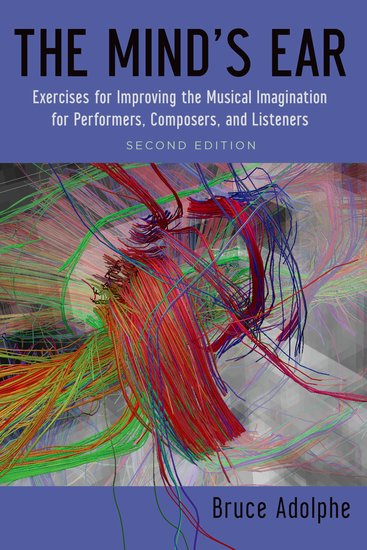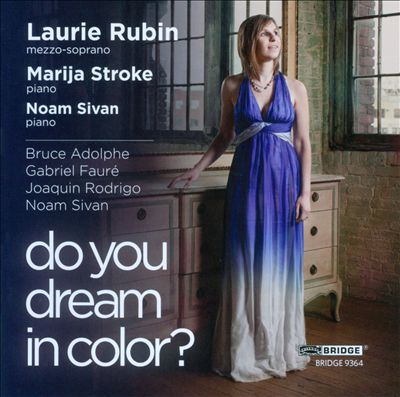Currently Writing: I too Bleed, and Hope for Beauty for chamber orchestra (to be premiered in Houston by the River Oaks Chamber Orchestra in the fall of 2019).
Commissioned by the River Oaks Chamber Orchestra of Houston in conjunction with the reopening of the Houston Holocaust Museum, 2019. This is a chamber work inspired by the life and tragic death of Alma Rosé.
Alma Rosé was born into the musical royalty of Vienna — her uncle was Gustav Mahler and her father was the renowned violinist Arnold Rosé — and she herself attained some fame as a violinist before the Nazis came to power. She became the conductor of the women’s orchestra at Auschwitz and by the power of her spirit and determination, the ensemble became a path to survival. Through this orchestra, Alma Rosé saved the lives of nearly 50 prisoners who would otherwise have died in the Nazi gas chambers. Alma died of an illness, probably botulism, shortly before the camps were liberated.
The title of this piece, I too Bleed, and Hope for Beauty, is a quote of Manca Svalbova, a young Slovak doctor at the Auschwitz hospital, and a close friend of Alma. The quote is Svalbova’s way of describing the message conveyed by Alma’s violin playing.
I too Bleed, and Hope for Beauty is a tribute to Alma Rosé and to the enduring power of music, which, even the worst circumstances imaginable, offers hope and beauty.
For a full account of Alma Rosé’s life, read Alma Rosé, Vienna to Auschwitz by Richard Newman with Karen Kirtley (Amadeus Press, Cambridge, 2000.)
Currently Writing: String quintet for the 50th anniversary of The Chamber Music Society of Lincoln Center in 2019.
Upcoming commissions: Brentano String Quartet; Dorian Wind Quintet; Da Capo Chamber Players; ROCO of Houston.
Currently Writing: The Origin an opera with a libretto by Richard Powers. Powers writes of the story:
“The Origin is the story of frail people trying to come to terms with their hopes in a world driven by chance. All the opera’s principal characters wrestle with the limits and comforts of belief, both religious and scientific. They feel the weight of a soul that disappears on them in the face of empirical evidence. But they must each, in their way discover that love has evolved far from its origins in natural selection to something beyond measurement and explanation. “What good is science,” each of them must ask, “if not to find more reasons to forgive our frailty?”
Look for updates on this project.
RECENT RECORDING, PREMIERE SOON:
I Saw How Fragile and Infinitely Precious the World Is is a work for mezzo-soprano, cello, sounds of outer space (NASA) and nature sounds from our planet.
The piece is dedicated to the late Piers John Sellers OBE, the British-American meteorologist, NASA astronaut and Director of the Earth Science Division at NASA/GSFC, and veteran of three space shuttle missions. “I Saw How Fragile and Infinitely Precious the World Is”, the only text that is sung in the work, is a quote from Piers Sellers, said as he looked at Earth from space.
Recorded in April 2017 by mezzo-soprano Theodora Hanslowe and cellist Sophie Shao, produced and engineered by Adam Abeshouse, the work will receive a live performance this summer at the Off the Hook Arts festival in Fort Collins, Colorado, on June 29th, 2018; details posted soon: : http://www.offthehookarts.org/summerfest-2017/
There will also be a conference honoring Piers Sellers as part of the festival with climate scientists from around the nation attending, featuring atmospheric scientists Scott Denning, David Randall, Sonia M. Kreidenweis, and others. Stay tuned!
NEW BOOK: Oxford University Press will publish Secrets of Creativity in 2018. Edited by Suzanne Nalbantian, the book will be a collection of writings on creativity from both biological and personal viewpoints from neuroscientists and artists of various disciplines. My chapter is called Mysteries and Methods of Musical Composition. Some of the other contributors are Jean-Pierre Changeux, Marcus E. Raichle, John Burt Foster, Suzanne Nalbantian, and Richard Powers.
RECENT WORK and performances:
I Will Not Remain Silent, a concerto for violin and orchestra inspired by the life of Joachim Prinz, composed for violinist Sharon Roffman.
The violin represents the voice of Joachim Prinz throughout the concerto. In the first movement, the orchestra represents Nazi Germany; in the second movement, the orchestra represents America during the civil rights era.
Who was Joachim Prinz?
Born in Germany in 1902, Prinz was an outspoken rabbi in Berlin during the Nazi years. Escaping to America in 1937, Prinz became a friend of Martin Luther King, Jr. and a vociferous supporter of the Civil Rights Movement. In pre-war Germany, Prinz saved thousands of lives and risked his own by warning Jews of the evils to come under Hitler. In 1963, he was among leaders of the March on Washington. His speech, alerting Americans to the disgrace of silence in the face of injustice, immediately preceded that of Martin Luther King, Jr. It was, he always felt, a highlight of his life, the culmination of all the things he had stood for throughout his career both in America and earlier in Germany. His words that day; “In the realm of the spirit, our fathers taught us thousands of years ago that when God created man, he created him as everybody’s neighbor. Neighbor is not a geographic concept. It is a moral concept. It means our collective responsibility for the preservation of man’s dignity and integrity.” In that same speech, Prinz said, “…the most urgent, the most disgraceful, the most shameful and the most tragic problem is silence.”
I Will Not Remain Silent received its world premiere on January 24th and 25th, 2015, in Germantown, TN, with the IRIS Orchestra conducted by Michael Stern, with violin soloist Sharon Roffman. To hear the world premiere click on this link: http://sharonroffman.com/prinzproject/i-will-not-remain-silent/listen/
The second performance of I Will Not Remain Silent was on April 29th in Luzern, Switzerland, at KKL, featuring the Human Rights Orchestra conducted by Alessio Allegrini, with soloist Ilya Gringolts.
In January 2016, I Will Not Remain Silent received its West Coast premiere, performed by violinist Daniel Hope with Jeffrey Kahane conducting the Los Angeles Chamber Orchestra. The LA Times featured an article called “Music gives voice to the fight for equality” about the concerto on January 13, 2017.
On June 23, 2018, Daniel Hope will perform I Will Not Remain Silent with the Philharmonie Essen, Germany, conducted by Jaime Martin. The program, curated by Daniel Hope who is artist-in-residence with the Philharmonie Essen, is called Heimat (Homeland), and also features music by Schulhoff, Korngold, and a staged production of Stravinsky’s L’histoire du soldat directed by Tom Morris, narrated by Thomas Quastoff, and acted by Katja Riemann and Daniel Hope.
________________________
Brain and Creativity Institute
![]()
As composer-in-residence at the Brain and Creativity Institute (USC) in LA, I have the great fortune to work with neuroscientists Antonio and Hanna Damasio, and Assal Habibi, head of the music team, looking at music and the brain. My work as a composer influenced by neuroscience concepts includes several pieces: Body Loops (for piano and orchestra); Self Comes to Mind (for cello and two percussionists — see Self Comes to Mind website); Memories of a Possible Future; and a new work, Musics of Memory, to be premiered at the Brain and Creativity Institute on October 27 and 18, 2014. Current experiments include a case study of the brilliant blind mezzo-soprano Laurie Rubin and a longitudinal study of the impact of musical studies on young children over a period of years, in collaboration with YOLA (Youth Orchestra LA, the program started by Gustavo Dudamel based on El Sistema) and the Thornton School of Music at USC. For BCI, the investigators into music and the brain are neuroscientists Assal Habibi, Beatriz Ilari, and Gil Carvalho (along with Antonio and Hanna Damasio, of course); the advisors on music are Yo-Yo Ma, Daniel Barenboim, Norman Cook, and myself.
October 27 and 28, 2014, the Brain and Creativity Institute presented the world premiere of Music of Memory for piano, harp, marimba, and guitar. The performers were: Norman Krieger, piano; Kenneth McGrath, marimba; Allison Allport, harp; Brian Head, guitar.
Based on how memory works, the structure of the piece is: I. Lived Experience; II. Mapping; III. Reassessed, Rearranged.
After the work was performed, there was a discussion about memory, music, and the brain with Antonio Damasio, Assal Habibi, and the composer. Location: Auditorium of the Brain and Creativity Institute at the University of Southern California, L.A.
NEWS: Musics of Memory is scheduled for a performance in conjunction with a talk by Antonio Damasio at the Aspen Science Center and the Aspen Music Festival on August 2nd, 2018.
_________________
Einstein’s Light — a film by Nickolas Barris
2015 is the 100th anniversary of Einstein’s theory of general relativity. To mark the occasion, the United Nations has proclaimed 2015 the Year of Light and Nickolas Barris is creating a 90-minute film about Einstein. I have the honor and pleasure of composing the score. Since Einstein was a violinist and particularly loved the music of Mozart and Bach, my score uses Mozart and Bach phrases and fragments which are then curved, warped, bent, stretched, and transformed into music that is inspired by Einstein’s ideas of the universe. The violinist for the soundtrack is Joshua Bell, performing with pianist Marija Stroke. .
On January 19th, 2015, violinist Joshua Bell and pianist Marija Stroke performed music from Einstein’s Light by Bruce Adolphe at the opening ceremony of the United Nations Year of Light 2015 at the UNESCO Auditorium in Paris. The images from the film were shown during the performance.
Sony Masterworks released a recording of EINSTEIN’S LIGHT; It is AVAILABLE ON:
Spotify: http://smarturl.it/sptfy-EinsteinsLight
iTunes: http://smarturl.it/it-EinsteinsLight
Amazon Music: http://smarturl.it/amp3-EinsteinsLight
Apple Music: http://smarturl.it/EinsteinsLight-apple
Google Play:http://smarturl.it/EinsteinsLight-gp
CHOPIN DREAMS — a new piano work for Carlo Grante
Italian pianist Carlo Grante gave the world premiere on September 15th, 2015 at Alice Tully Hall in New York followed by the European premiere at the Musikverein (Brahms-saal) in Vienna on November 26th of Chopin Dreams, a 25-minute solo piano work inspired by the music of Chopin. The movement titles give the idea: New York Nocturne; Jazzurka; Piano Popping; Brooklyn Ballad; Quaalude; Hora.
Carlo Grante also performed the world premiere of my Piano Concerto with the Zürich Philharmonia conducted by Fabio Luisi on July 10th, 2016.
Carlo Grante will also give the world premiere of Seven Thoughts Considered as Music, which I composed for him in 2016. Recorded on Naxos American Masters of Chopin Dreams and Seven Thoughts Considered as Music. In the Gramophone review, Jed Distler wrote: “…his original compositions convey a compelling voice, high craft, authenticity, communicative immediacy and substance. This is especially true for Chopin Dreams, whose six sections are modeled upon specific Chopin works, yet somehow avoid sounding overly clever or referential. Carlo Grante’s detailed, colorful and thoughtfully articulated interpretations will be hard to equal, let alone surpass; he clearly commits to Adolphe’s multifaceted expressive range.”
https://itunes.apple.com/us/album/adolphe-piano-music/id1169198091

